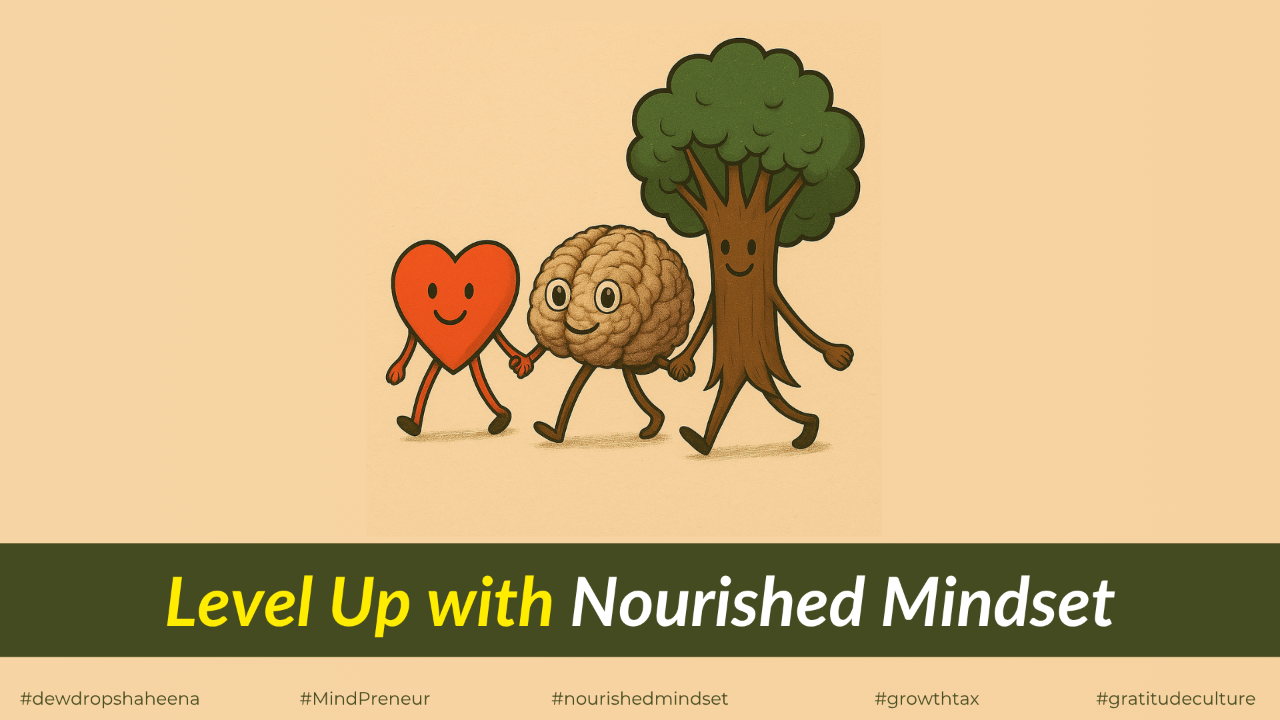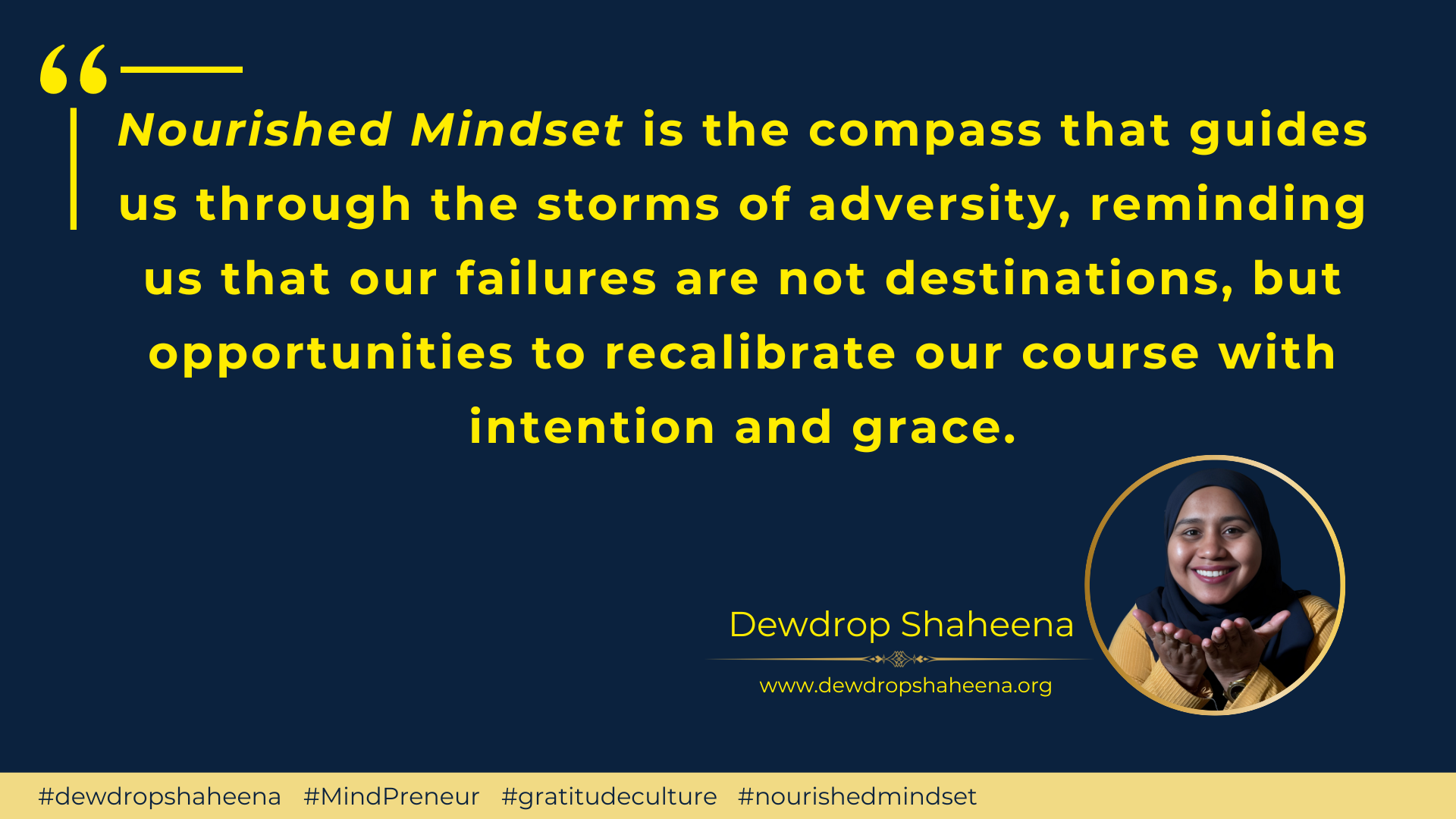
Have you ever felt like a failure? Have you ever been called a failure? I have—more than once.
This isn't a comfortable topic, especially for high-achieving individuals like yourselves. CEOS, executives, coaches, and trainers often present an image of strength and competence. But the truth is, failure is a universal human experience, and acknowledging it can be a powerful catalyst for growth (Muslim Pro, n.d.).
While failure can be a valuable learning experience, the ability to learn from it is influenced by psychological factors. Entrepreneurs who attribute failure to internal and controllable factors are more likely to learn and grow from the experience (Schardt, 2022; Riar et al., 2021). Conversely, external attributions or a lack of reflection can hinder learning and lead to repeated mistakes (Yamakawa et al., 2015).
My journey, marked by what some might perceive as significant setbacks, has been instrumental in shaping my understanding of resilience and the development of the "nourished mindset."
My Failures: A Crucible of Transformation
My experiences with "failure," viewed through the lens of traditional success metrics, were not isolated incidents but rather a series of transformative experiences. Each one brought its own set of challenges and emotional hurdles:
- Savio Collection: At 23, my first business, a tailor shop, collapsed, resulting in a substantial financial loss of almost half a million rufiyaa. This wasn't just a balance sheet deficit but a crushing blow to my confidence. I felt the weight of responsibility, the shame of not meeting expectations, and the fear of financial ruin. The experience left me questioning my capabilities and doubting my entrepreneurial instincts. The impact of such early business failure on an entrepreneur's self-efficacy and future intentions has been explored in prior research (Pan et al., 2022).
- A Star Zone: My second venture as an education provider faltered due to misaligned partnerships. Hiring the wrong people not only led to business setbacks but also tarnished my professional image. This failure was excruciating because it involved a breach of trust. The disappointment in others and the self-blame for poor judgment created a deep sense of disillusionment. Research has shown that failure in entrepreneurial endeavours can lead to significant emotional distress and feelings of inadequacy (Gorgievski et al., 2018).
- Alpha Print: My third entrepreneurial endeavour was derailed by personal challenges related to my spouse. This experience underscored the interconnectedness of our personal and professional lives. The emotional toll of this period was significant, filled with difficult decisions and the realisation that sometimes, even the most passionate pursuits must take a backseat to personal well-being.
- Career Transition: Leaving a 20-year career in accounting and finance to pursue coaching, speaking, and training was perhaps the most unconventional "failure" in the eyes of many. After two decades of building a stable career, the decision to walk away was met with scepticism and concern. This transition was driven by a profound sense of misalignment – a growing dissonance between my values, vision, and daily work. While not a failure in the traditional sense, it challenged my identity and security and was accompanied by anxiety, uncertainty, and the fear of the unknown. Navigating career transitions, especially after long periods in a particular field, can evoke feelings of uncertainty and self-doubt, akin to the emotional challenges faced during entrepreneurial failures (O'Brien & Palmer, 2023).
From Ashes to Art: The Birth of a Nourished Mindset
These experiences, though painful, were not without purpose because the Quran (2:286) reminds us, "Allah does not burden a soul beyond that it can bear." I began to question conventional definitions of success and failure in the crucible of these challenges. Politis and Gabrielsson (2009) state that failure is "generally conceptualised as the condition, or fact, of not achieving some desired result or end." This definition aligns with the understanding that failure is a deviation from expected outcomes, whether in business, personal endeavours, or career paths. However, I realised that:
- Financial loss doesn't equate to personal worthlessness.
- Misplaced trust can be a lesson in discernment.
- Personal well-being is paramount to sustainable success.
- Authenticity is more valuable than external validation.
The pain of these setbacks forced me to delve deeper, to seek a more resilient and holistic approach to life and work. This pursuit of continuous learning, inspired by Earl Nightingale's assertion that "If you read for an hour a day, you will become an expert in ten thousand hours," and the work of Carol Dweck on the growth mindset, became my guiding principle. This wasn't merely about bouncing back from adversity, as emphasised in Hadith 19, "Know that victory comes with patience, relief with affliction, and hardship with ease."
On the authority of Abu Abbas Abdullah bin Abbas (may Allah be pleased with him) who said: One day I was behind the Prophet (peace and blessings of Allah be upon him) [riding on the same mount] and he said, “O young man, I shall teach you some words [of advice]: Be mindful of Allah and Allah will protect you. Be mindful of Allah, and you will find Him in front of you. If you ask, then ask Allah [alone]; and if you seek help, then seek help from Allah [alone]. And know that if the nation were to gather together to benefit you with anything, they would not benefit you except with what Allah had already prescribed for you. And if they were to gather together to harm you with anything, they would not harm you except with what Allah had already prescribed against you. The pens have been lifted and the pages have dried.” Hadith 19, 40 Hadith an-Nawawi
This wasn't just about bouncing back; it was about evolving. It directed me to look inward and explore my own alchemy. It made me sit and ponder about the creations, alternation of day and night and the realisation of the importance of continuously seeking guidance from Allah. It led me to develop the concept, "nourished mindset," which goes beyond the growth mindset.
According to Carol Dweck, "Individuals who believe their talents can be developed (through hard work, good strategies, and input from others) have a growth mindset. They tend to achieve more than those with a more fixed mindset (those who believe their talents are innate gifts). This is because they worry less about looking smart and put more energy into learning."
What is the 'Nourished Mindset?'
In my upcoming book, Nourished Mindset (Sep 2025, Insha Allah), I explore how to go beyond believing in your intelligence to develop and continuously succeed in business and life. The Nourished Mindset is about aligning our learning and actions with our purpose, guided by faith and wisdom.
Imagine a gardener who meticulously tends to their plants, ensuring they receive the right amount of sunlight, water, and nutrients. Yet, they cannot control the weather, the sudden storms, or the unexpected pests. They must trust in the natural process, knowing that their efforts will bear fruit in due time. This is the essence of the Nourished Mindset.
The Nourished Mindset focuses on sowing our dreams, nurturing our inner growth, and having faith in a greater plan. It emphasises that our path isn't measured solely by our accomplishments, but by the insights we gain and our influence on others. It also highlights the importance of our relationships, which empower us to stand firm. Ultimately, it's about gratitude and selfless giving without anticipating returns.

Conclusion
So, will you be called a failure? Maybe by some. But remember, you have the power to upgrade your mindset, nourish your soul, and shift your perspective. Embrace the journey, learn from every experience, and progress with gratitude and purpose.
Feeling inspired?
Discover how my frameworks can help you turn insight into impact.

